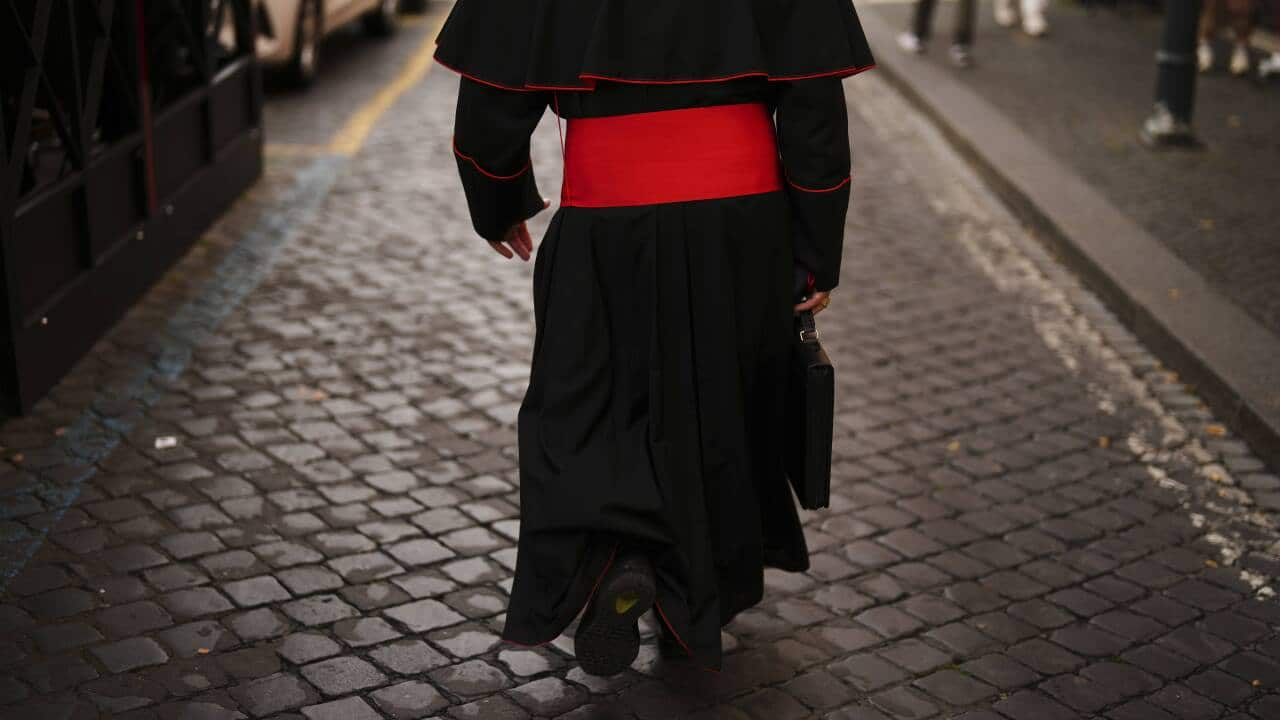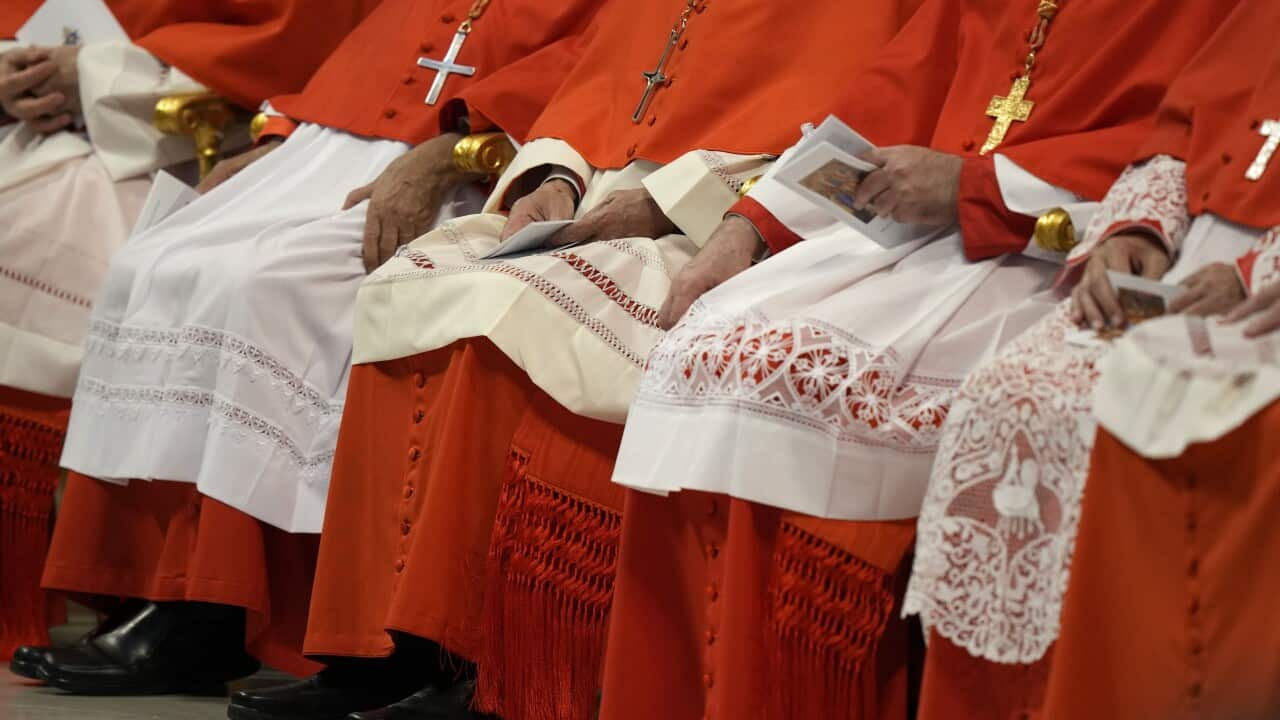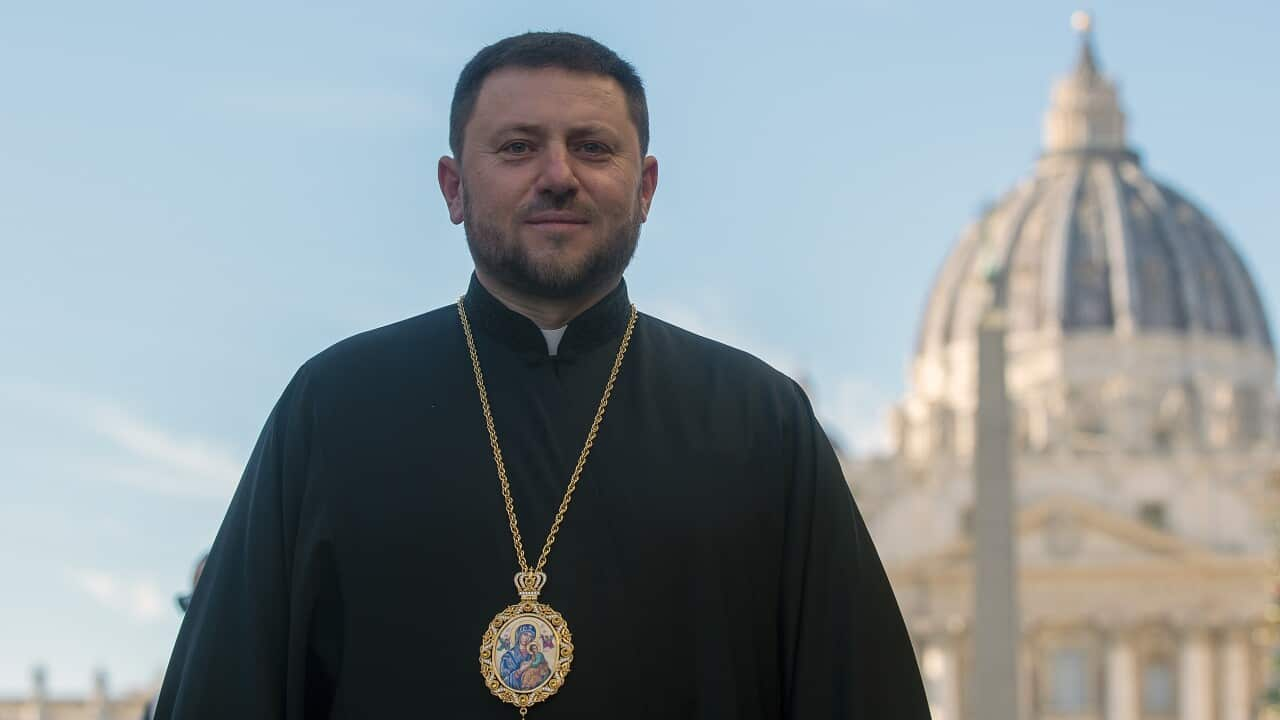Catholic cardinals from around the world have gathered in Vatican City as they prepare to elect a new pope in a centuries-old process known as a conclave.
Steeped in tradition and secrecy, the process involves a group of cardinal electors — senior Church figures under the age of 80 — casting their votes inside the Sistine Chapel to elect the 267th Roman pontiff, .
But this year's conclave, due to start today, is already making history — here's why.
How is this conclave different from other years?
With representatives from 70 countries across five continents, this conclave is the largest — and the most international — ever.
Dr Joel Hodge, associate professor at the Faculty of Theology and Philosophy at the Australian Catholic University, says this is partly due to the late Pope Francis, who increased the representation from countries that never had cardinals before.
But it's also part of a broader lean into globalisation.
"Representation from Asia and Africa has proportionally increased amongst the cardinal electors and the European representation over the last 50 to 70 years has gradually been declining," Hodge said.
"It's still significant, but there has been an increase from Pope Francis and previous popes to globalise the representation of those cardinal electors."
Additionally, we're also seeing more cardinal electors participate than normal.
"There is a maximum number of cardinal electors that previous popes have stipulated under canon law [how the church organises and governs itself], and that's usually 120," Hodge said.
"This election has 133 cardinals participating as electors.
"There has been an allowance made by Pope Francis to have a few additional cardinals for this election."
Europe will continue to be the best-represented region with 52 — 39 per cent — of the cardinal electors. That is down on 2013, when Europeans formed more than half — 52 per cent, or 60 of the 115 cardinals at the conclave that chose Pope Francis.
Italy will still have the most representatives at 17, down from 28 in 2013.
Here's how many cardinal electors each region will have:
- Europe: 52
- Asia: 23
- Central and Latin America: 21
- Africa: 17
- North America: 16
- Oceania: 4
Cardinal Mykola Bychok will represent both Australia and Ukraine. At age 45, he is the youngest in the conclave.
How long will the conclave last?
Conclaves have no set time limit. Voting continues until a candidate receives a two-thirds-plus-one majority.
In the past, conclaves have ranged from just one day to years. The longest was nearly three years (from 1268 to 1271) with the election of Pope Gregory X.
In more recent times, the process is typically resolved within a few days. The conclave that elected Francis in 2013 took five rounds of voting.

Edward Berger's 2024 film Conclave starred Ralph Fiennes in a fictitious exploration of the conclave process. Source: AP / Philippe Antonello
"I think that's always the ideal — that it doesn't go on too long. If you can get an election within two or three days, that's ideal."
If they can't decide on a new pope within three days, Hodge says they can opt for a "day of prayer" to help with their decision. "They can take a break from the voting to really concentrate on who is a likely candidate and who might be someone that God is suggesting for the papacy," he said.

Francis was widely viewed as a progressive pope. Source: Getty / Sean Gallup
When will we know the result?
During the conclave process, the cardinals are sworn to secrecy, risking excommunication if they reveal what happens in the conclave, and are forbidden from contacting the outside world until they have made a decision.
The Vatican announced late on Monday that it would cut the phone signal within the tiny city state from 3pm local time on Wednesday until a new pope is elected — although this will not affect St Peter's Square.
Required to leave their mobile telephones behind when the voting process starts, the cardinals will let the world know their progress by burning their ballots to produce smoke. Chemicals from a separate stove are mixed with the smoke before it streams from a chimney atop the Sistine Chapel. Black smoke indicates no decision, while white smoke indicates a new pope has been elected.
Who are the top contenders?
There's no clear frontrunner for who will be elected as the next pope. But there are a few leading figures:
- Cardinal Luis 'Chito' Antonio Tagle: From the Philippines, Cardinal Tagle, 67, could be the first pope from Asia. He holds a similar commitment to social justice as Pope Francis did, and is considered to be a more progressive option for the next pontiff.
- Cardinal Pietro Parolin: Serving as a high-ranking Vatican official, including as Pope Francis' secretary of state, Cardinal Parolin, 70, is seen as a compromise for progressives and conservatives. While he's seen as more pragmatic than Francis, there are concerns the Italian lacks the pastoral experience necessary.
- Cardinal Peter Kodwo Appiah Turkson: Hailing from Ghana, Cardinal Turkson's views have been seen as a mix of moderate and conservative. The 76-year-old has been vocal on issues like climate and economic justice, whilst maintaining the church's traditional positions on priesthood, homosexuality, and marriage between a man and a woman.
- Cardinal Peter Erdo: Hungarian Cardinal Erdo, 72, is considered a traditionalist and is one of the leading conservative candidates. His election would see a dramatic departure from Pope Francis' approach.
- Cardinal Angelo Scola: Cardinal Scola was among the favourites during the 2013 conclave that ultimately elected Pope Francis. The Italian's ideals are more conservative, mirroring the approach of Pope Benedict XVI, who preceded Francis. He's opposed to female deacons and left-leaning gender politics. At 83, he is above the 80-year voting limit, but is still in the running.
"It is somewhat of an open field ... it will be interesting to see where the cardinals land," Hodge said.
"There will be different opinions. I think a lot of people will be hoping for a pope who displays some of the qualities of Pope Francis. Some people might be hoping for some differences — maybe someone who's a bit stronger on the doctrine and the teaching of the church."
With reporting by AFP.





